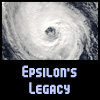| cieldumort |
| (Moderator) |
| Tue May 21 2013 03:35 AM |

|
|
|
Our hearts and prayers go out to the victims of yesterday's nightmare tornado. Certainly in the days and weeks ahead there will be lots of recovering going on - and most of all not simply of the architectural type.
Every weather tragedy has its silver linings. Sometimes they are obvious right away: lost loved ones found alive, most cherished items freakishly left undamaged while the rest of a home seemingly explodes, etc.
Many times the silver linings are in the form of lessons learned - what we can do different and better in the future to minimize loss of life, improvements in forecasting, changes to the way warnings are disseminated, etc.
While nowhere near as important as the true silver linings mentioned above, I think that readers of this forum may find the following observations noteworthy:
EF 4 & EF 5 tornadoes are such a rarity, that when we have them it *might* be possible to learn something more about what is going on with the climate at large. It is *possible* that they expose an important signal within what is often weather noise, being that weather is so fluid.
The 2013 Atlantic Hurricane Season is forecast to be a very active one, but one of the critical variables that has seasonal forecasters somewhat unsure of their expected totals is whether or not we flip to an El Nino, as El Ninos tend to significantly hamper tropical cyclone development in the Atlantic.
Currently, the best model predictions suggest that 2013 will be ENSO neutral, neither in a La Nina, or El Nino state. As such, forecasts calling for about 17 named storms/ 10 hurricanes/ 5 majors do not seem unreasonable, especially in light of the past 18 seasons (1995-2012).
I wanted to know if it might be possible to glean an ENSO trend correlating, coincidentally or not, with late May EF4/EF5 Oklahoma tornadoes, and while by no means is this on a level with something like a peer-reviewed paper, the data is interesting, and I share it here for your consideration:
Second Half of May EF4 & EF5 Oklahoma Tornadoes & That Hurricane Season's General ENSO State:
1955 = 3 Strong La Nina
1957 = 1 Strong El Nino
1962 = 2 Neutral
1971 = 1 Weak La Nina
1973 = 2 Strong La Nina
1981 = 1 Neutral
2011 = 3 Weak La Nina
2013 = 2 TBD
Top Years: 1955 (La Nina), 2011 (La Nina), 1973 (La Nina), 1962 (Neutral), 2013 (TBD).